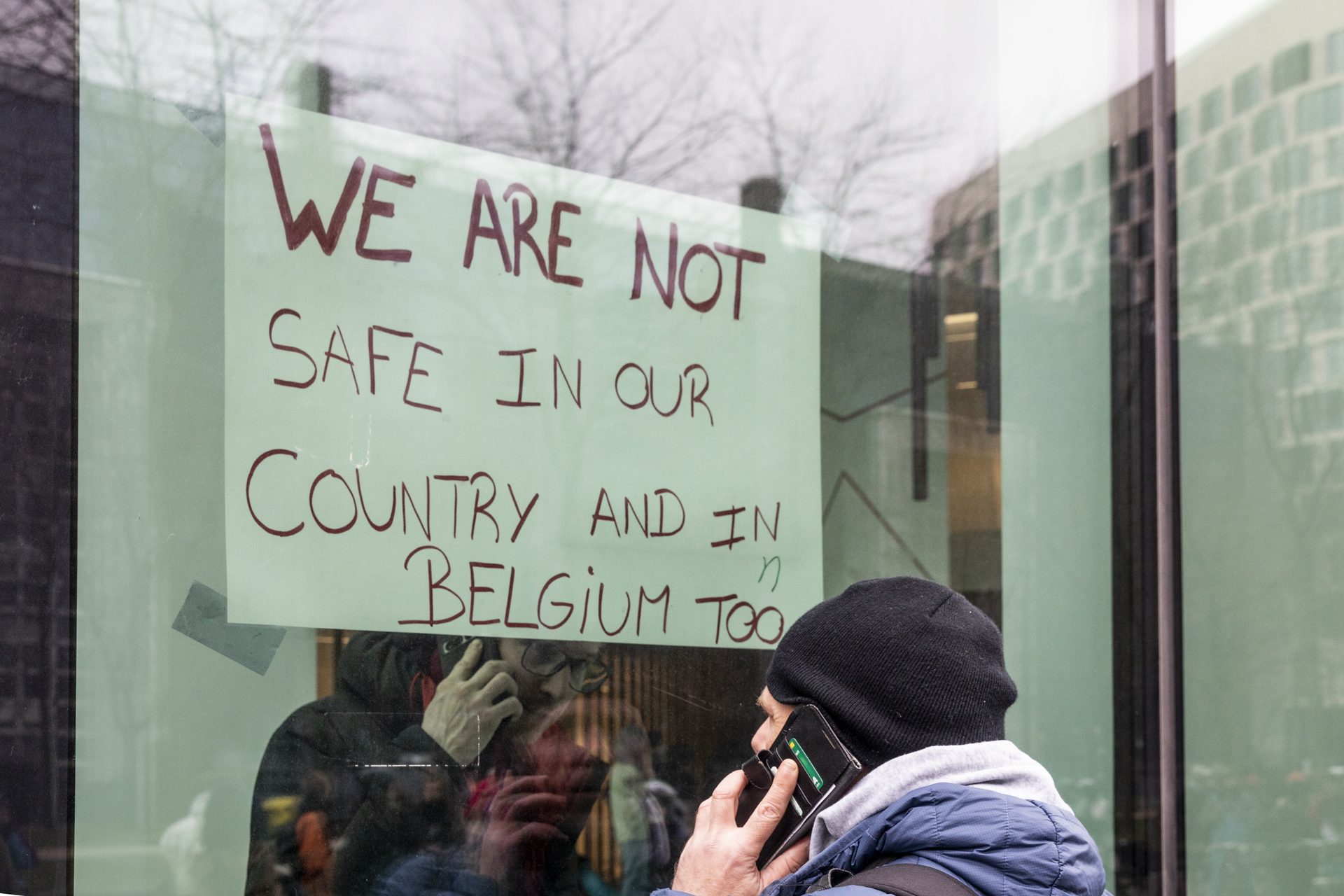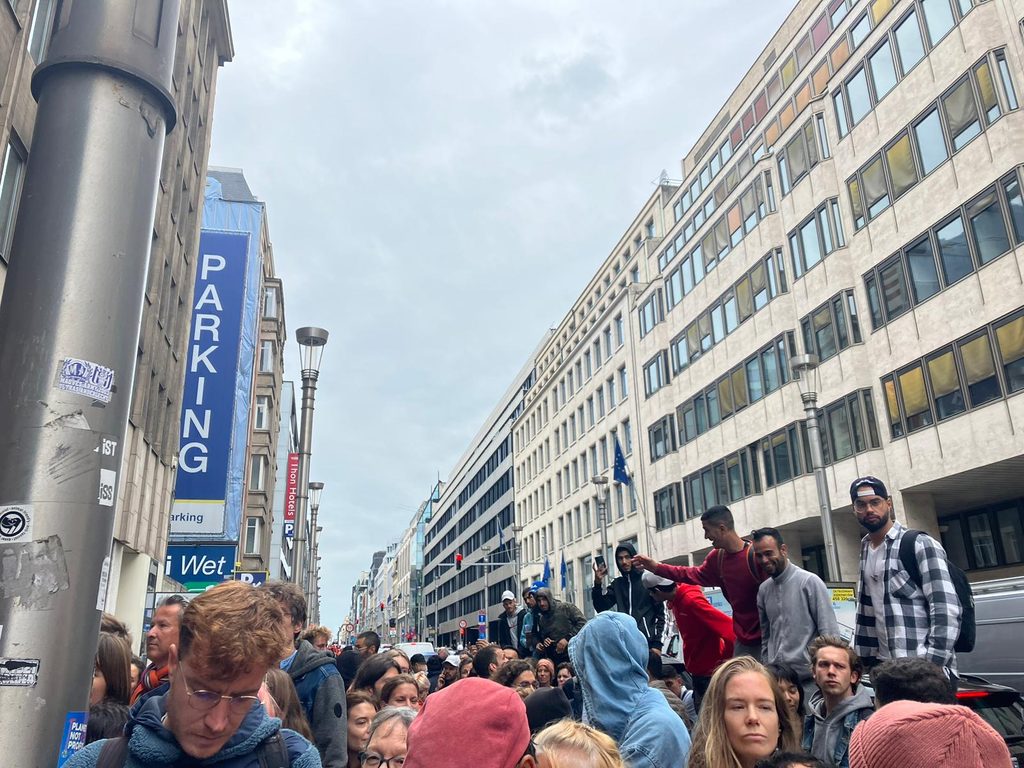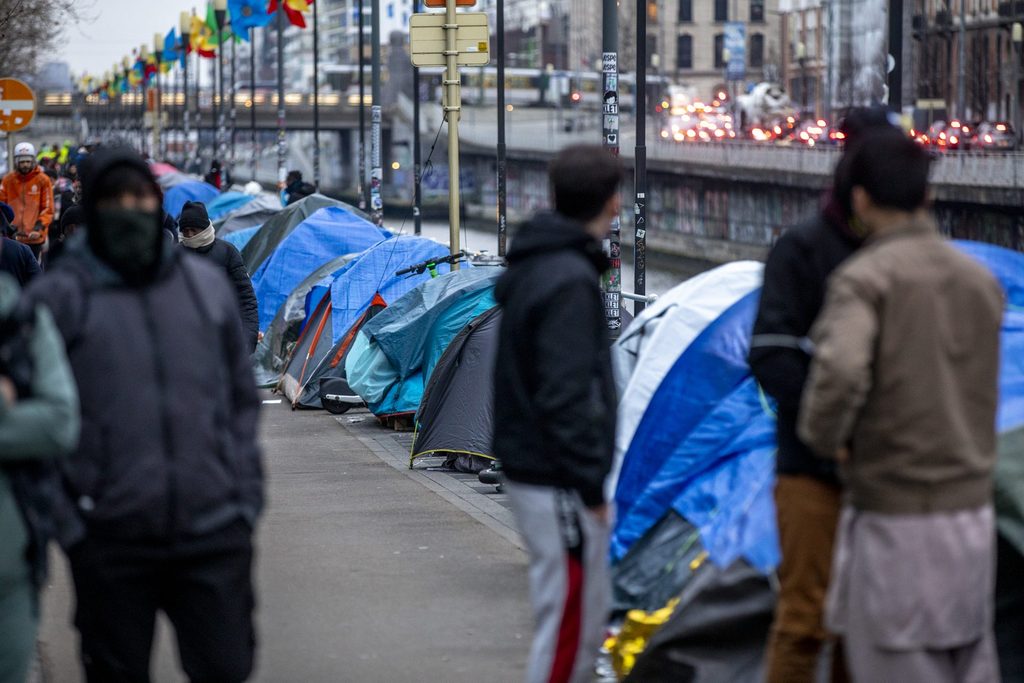Brussels authorities have called on the Federal Government to provide all asylum seekers in the country with shelter in accordance with the law following the decision that single men would be excluded from the network.
On Tuesday evening, it was announced that Belgium would temporarily stop providing single men who are applying for asylum with shelter in the network of Fedasil, the agency responsible for the reception of asylum seekers, despite it being a legal entitlement. Already this group had been restricted from gaining access for almost two years, but this decision took away any lingering hope.
The announcement was met with immediate challenges from NGOs, lawyers and several MPs who questioned the legality of the situation. Already struggling to deal with Belgium's failure to provide shelter to all asylum seekers, the Brussels-Capital Region Government officially denounced the decision on Thursday, calling on the Federal Government to accommodate all asylum seekers according to law.
National decisions, local consequences
The condemnation followed a meeting in which Brussels administrators discussed security at Brussels-Midi Station and the situation more generally in train and metro stations. Neighbourhood organisations had previously highlighted security concerns.
Whilst groups had first accused the Brussels Government of mishandling the situation, the Federal Government subsequently stepped in to coordinate a State and social response. Although the Brussels Region accepted its responsibilities to "deal with the social reality", it stressed that other institutional powers must also help to tackle other aspects of the issue.
Minister-President Rudi Vervoort expressed "deep concern" that the decision would reverse progress on the local level, warning that the decision will "inevitably have dire consequences for Brussels."

Asylum seekers squatted in a building in Brussels due to the lack of sheltered places from the government. Credit: Belga/ Hatim Kaghat
Vervoort noted that the vast majority of single male asylum seekers are concentrated in Brussels, where the institutions where they have to register – such as the immigration offices – are located.
Brussels has already seen the consequences of barriers to processing asylum seekers on its streets, leading to a deteriorating socio-sanitary situation and security in a number of neighbourhoods. Despite previous calls for action at a Federal level, the situation is only getting worse.
Tweet translation: Surely it's not hard to see the connection? Sending even more vulnerable people literally onto the streets, with no coordinated approach to drug trafficking and then being surprised when there is a problem in our stations?
Regional officials implored the Federal Government to coordinate a proactive approach to problem areas such as Brussels-Midi. They argued strongly against the decision not to process applications from single male asylum seekers but instead "make every effort to ensure that all asylum seekers receive material assistance" in accordance with national and international law.
Notably, this would mean implementing a national dispersal plan to share the burden more equally.
Making matters worse
Denying access to the shelter network to a large number of asylum seekers will quickly become a visible problem; on Thursday 31 August, around a hundred asylum seekers occupying 91 Rue de la Loi (next to the former headquarters of the centrist CD&V political party, of which de Moor is a member) will be evicted.
The building's inhabitants first entered the site due to the lack of state shelter provided. In recent months, courts have twice ordered that Fedasil take responsibility for the occupants and manage the building properly. As with the other judgements, these have been ignored.
"This latest eviction is a stinging reminder that the reception crisis is far from resolved," a collective of organisations demonstrating against the eviction on Thursday noted. "Every day, new asylum seekers join the thousands already on the streets. In the midst of the pre-election period, we urgently need to show our solidarity against racist rhetoric."

Credit: Lauren Walker/The Brussels Times
As there is no legal notice informing the occupants of the eviction, the people were not removed from the building on Thursday. "But once they are removed, it is unclear what will happen to the men here, following De Moor’s decision yesterday,” Marie Doutrepont, a lawyer at Progressive Lawyers Network, told The Brussels Times.
Asylum seekers evicted from the Schaerbeek squat at Rue des Palais in February this year were transferred to asylum reception centres. This will not be the case for single men currently occupying the Rue de la Loi building. De Moor has stated that they can go to Brussels' homeless shelters, but these sites are completely saturated, meaning the men will likely all end up on the streets, once again.

